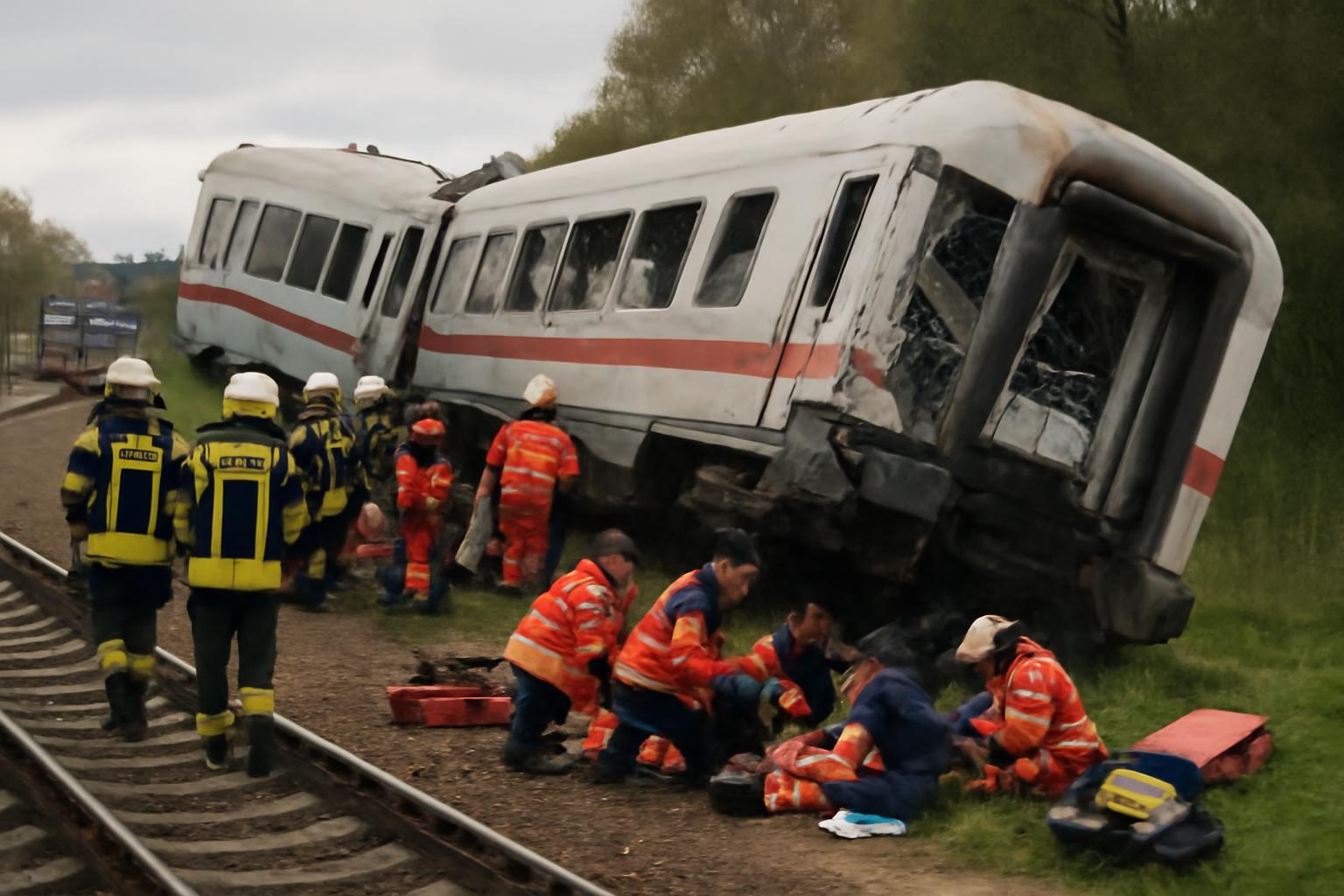A tragic event has unfolded in the district of Biberach, Baden-Württemberg: a passenger train has derailed, leaving many injured and prompting a massive emergency response. Rescue teams are working feverishly, combing through toppled carriages in hopes of saving lives. The authorities remain cautious, as the true scale of this calamity is yet to emerge. Early images show train cars sprawled in a wooded area, a chilling testament to the violence of the derailment. At this moment, the loss of life—if any—remains unconfirmed, but the region is bracing for bad news as this “mass casualty incident” continues to unfold.
It is precisely on days like this that we must reflect not only on the immediate causes and consequences of such disasters but also on the larger institutional context in which they arise. How often have we been reminded that centralized planning, however well-intentioned, struggles to accommodate the spontaneous order and complexity inherent in modern infrastructure? Transportation systems, when run or overly regulated by top-down authorities, are susceptible to bureaucratic inefficiencies, slow innovation, and a lamentable lack of accountability.
Let us ask: Was this accident the result of a technical failure, human error, or some deeper systemic malaise? And more crucially—did heavy-handed regulation, or perhaps the insufficient incentives characteristic of state-run enterprises, play a part? When competition is stifled and monopolistic structures are protected by the state, what incentive remains to rigorously pursue safety, efficiency, and customer welfare? Time and again, public monopolies, shielded from the market’s unforgiving signals, fall prey to complacency. Safety inspections may become a matter of box-ticking; investments in new technologies may be delayed; the voice of the passenger is drowned out by administrative fiat.
This is not to diminish the heroism of emergency responders or the sorrow of those affected—it is a call to self-examination. We must have the humility to admit that no central authority can possess all the knowledge required to manage such vast and intricate systems flawlessly. It is the dispersal of decision-making, the feedback of free individuals and enterprises, and the discipline of the market that best foster genuine progress and, yes, safety.
Let us hope today’s tragedy prompts not just sorrow, but a clear-eyed reappraisal of how we organize our societies. We must resist the perennial temptation to demand more centralized control in response to failure—a temptation so often wielded by politicians in moments of crisis. True progress, resilient safety, and human flourishing demand that we recognize the limits of collective authority and the unparalleled strength of individual liberty, entrepreneurship, and responsibility. Only then can we build systems humane and robust enough to withstand the accidents that fate—or folly—may deliver.
